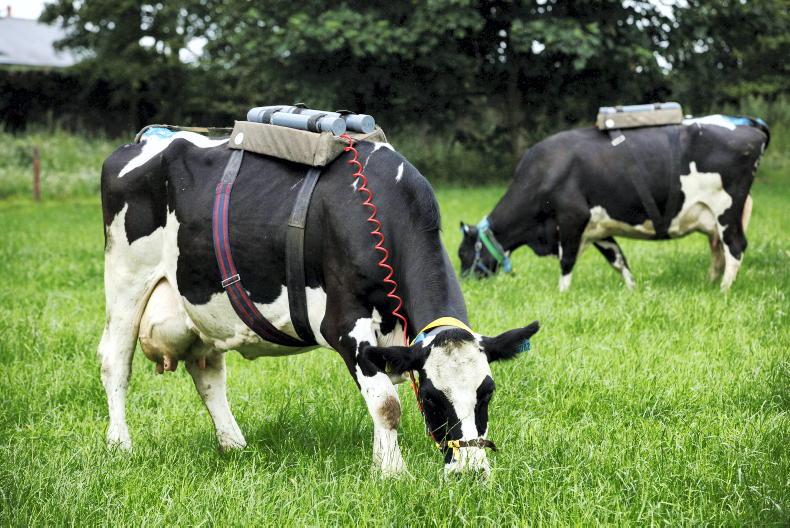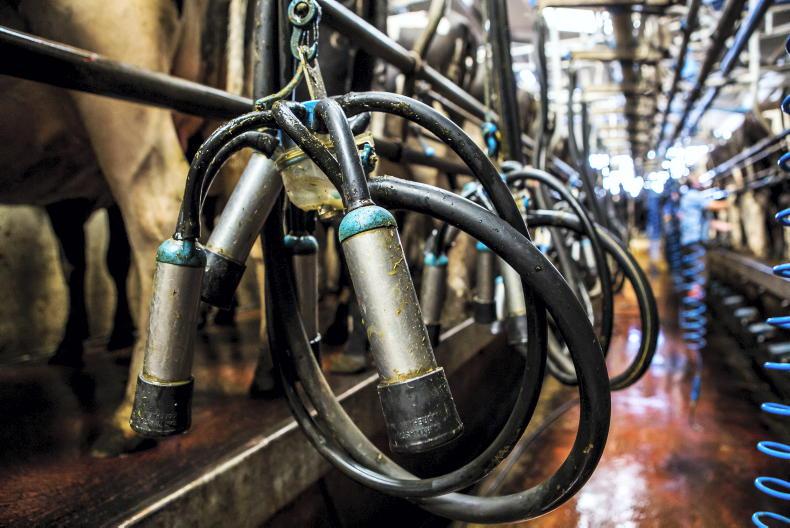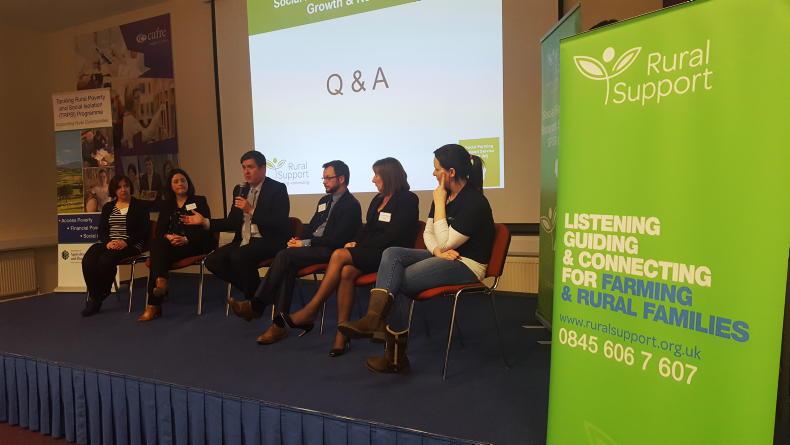There are many important issues currently facing NI farming, but the one area that is really going to shape the future is carbon emissions.
With DAERA officials working on a Climate Change Bill, and under pressure from Minister Poots to get it delivered before the end of the current Assembly in March 2022, it is an area likely to attract much debate in the next 12 months.
Driving wider UK policy are targets set by the Climate Change Committee (CCC), the body set up to give advice to government on emission reduction. In NI, the CCC has recommended a 48% cut in greenhouse gas emissions by 2030 (compared to 1990 levels) and an 82% reduction by 2050.
Over the period from 1990, the DAERA figures also suggest that agricultural emissions have not changed
DAERA figures show that by 2018 emissions were down 20% on 1990 levels, so some significant progress has already been made. Much of that is due to lower emissions from energy supply as power stations switched from coal to natural gas. Those have been relatively easy wins, and future reductions will require significant changes.
Over the period from 1990, the DAERA figures also suggest that agricultural emissions have not changed. So while agriculture accounted for just under 22% of NI emissions in 1990, the 2018 figure is now 27%. And as we switch over to electric cars etc in the next few years, this agriculture share is only going higher.
The response received did not give much assurance that those setting targets actually understand farming
However, as pointed out on many occasions, there are valid arguments as to why agriculture is not treated fairly in these calculations.
Methane (CH4) from ruminant livestock accounts for 65% of agricultural emissions, but ruminants recycle carbon, they don’t create it from nothing.
It was a point recently put to a member of the CCC speaking on a webinar organised by the NI Institute of Agricultural Science (NIIAS). The response received did not give much assurance that those setting targets actually understand farming.
Farmers must reduce emissions, but we also must have confidence in those setting the targets, and those people must be properly informed by local science. The role of AFBI is critical.
Read more
The future is pasture-fed, claims Climate chair
Climate law to cap stock numbers
Cut NI farmland in half, say scientists
There are many important issues currently facing NI farming, but the one area that is really going to shape the future is carbon emissions.
With DAERA officials working on a Climate Change Bill, and under pressure from Minister Poots to get it delivered before the end of the current Assembly in March 2022, it is an area likely to attract much debate in the next 12 months.
Driving wider UK policy are targets set by the Climate Change Committee (CCC), the body set up to give advice to government on emission reduction. In NI, the CCC has recommended a 48% cut in greenhouse gas emissions by 2030 (compared to 1990 levels) and an 82% reduction by 2050.
Over the period from 1990, the DAERA figures also suggest that agricultural emissions have not changed
DAERA figures show that by 2018 emissions were down 20% on 1990 levels, so some significant progress has already been made. Much of that is due to lower emissions from energy supply as power stations switched from coal to natural gas. Those have been relatively easy wins, and future reductions will require significant changes.
Over the period from 1990, the DAERA figures also suggest that agricultural emissions have not changed. So while agriculture accounted for just under 22% of NI emissions in 1990, the 2018 figure is now 27%. And as we switch over to electric cars etc in the next few years, this agriculture share is only going higher.
The response received did not give much assurance that those setting targets actually understand farming
However, as pointed out on many occasions, there are valid arguments as to why agriculture is not treated fairly in these calculations.
Methane (CH4) from ruminant livestock accounts for 65% of agricultural emissions, but ruminants recycle carbon, they don’t create it from nothing.
It was a point recently put to a member of the CCC speaking on a webinar organised by the NI Institute of Agricultural Science (NIIAS). The response received did not give much assurance that those setting targets actually understand farming.
Farmers must reduce emissions, but we also must have confidence in those setting the targets, and those people must be properly informed by local science. The role of AFBI is critical.
Read more
The future is pasture-fed, claims Climate chair
Climate law to cap stock numbers
Cut NI farmland in half, say scientists










SHARING OPTIONS